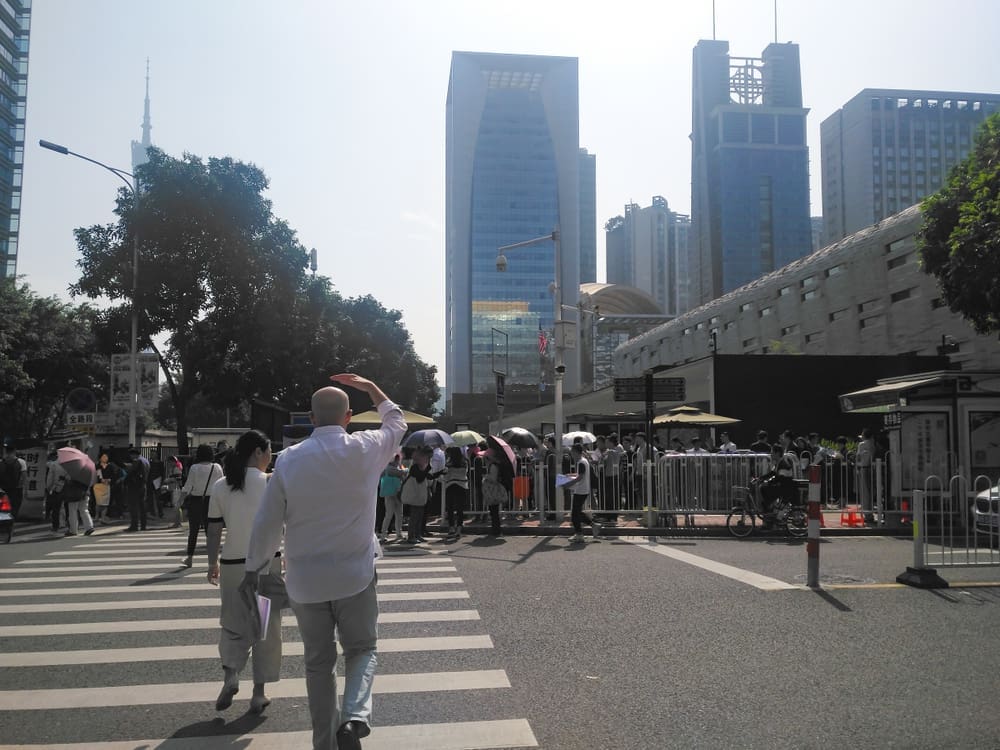The Associated Press has revealed that the U.S. government has implemented a sweeping ban on romantic or sexual relationships between American government personnel stationed in China and Chinese citizens. This directive also applies to family members and contractors holding security clearances. Enforced by outgoing U.S. Ambassador Nicholas Burns in January, just before President Donald Trump took office, the newly established “non-fraternization” policy marks a significant shift reminiscent of Cold War-era regulations.
Sources with direct knowledge of the situation, speaking under anonymity, disclosed that although certain U.S. agencies previously imposed strict rules on such interactions, a comprehensive prohibition had not been publicly enforced since the Cold War. Traditionally, it has not been uncommon for American diplomats to form personal relationships with locals and even to marry them.
Last summer, a more limited version of this policy had already barred U.S. personnel from engaging in romantic or sexual relations with Chinese citizens employed as guards and support staff at the U.S. Embassy and its five consulates in China. However, Burns expanded the restriction to apply universally to all Chinese citizens in China come January.
The specifics of how “romantic or sexual relationship” is defined under this policy remain unclear, as the Associated Press was unable to obtain detailed explanations. According to individuals familiar with the policy, it was first considered following concerns raised by members of Congress over the adequacy of previous restrictions.
The policy extends to all U.S. missions across mainland China, including the embassy in Beijing and consulates in Guangzhou, Shanghai, Shenyang, and Wuhan, as well as the consulate in Hong Kong. However, it does not apply to U.S. personnel stationed outside of China. Existing relationships with Chinese citizens are exempt, provided exemptions are granted; otherwise, personnel must end the relationship or resign. Violations result in immediate expulsion from China.
Though communicated verbally and digitally to American personnel, the policy has yet to be publicly acknowledged. The State Department declined to comment on internal matters, while questions were redirected by the National Security Council to the State Department. Nicholas Burns, now vice-chair at The Cohen Group, did not respond to requests for comment.
A Cold War Throwback
Throughout history, intelligence agencies have notoriously exploited relationships to extract sensitive information, particularly during the Cold War. Historically, U.S. government personnel stationed in China were subject to stringent reporting requirements regarding personal relationships, akin to policies in regions posing high intelligence threats like Russia or Cuba. According to declassified documents, in 1987, the U.S. government prohibited personnel in the Soviet bloc and China from forming personal or romantic connections with locals following a U.S. Marine’s entanglement with a Soviet spy. Restrictions eased after the Soviet Union’s collapse in 1991, but a comprehensive ban had been absent until this January.
Until recently, U.S. personnel in China needed to report all intimate contact with Chinese citizens but were not explicitly forbidden from engaging in romantic or sexual relationships. American diplomats and intelligence experts warn that China continues to aggressively utilize so-called honeypots to gain access to American secrets. Presentations given to personnel assigned to China highlight case studies involving attempts by Chinese intelligence to seduce American diplomats, coupled with cautionary advice about possible surveillance from dozens of Chinese state security agents.
Little is known about non-fraternization policies in other countries, as such policies tend to be classified, leaving the extent of restrictions in other nations largely unknown.
Rising Tensions and Tighter Controls
In recent years, relations between Washington and Beijing have grown tense over issues like trade, technology, and geopolitical competition. Peter Mattis, a former CIA analyst and president of The Jamestown Foundation, referenced at least two documented cases of Chinese agents seducing U.S. diplomats in China, though no recent instances have been reported. Mattis emphasized the vulnerability of Chinese citizens dating American diplomats to potential coercion by Chinese state security, which often pressures citizens for information.
The Chinese Ministry of State Security, or MSS, has reportedly intensified efforts to access U.S. intelligence, suggesting an increased aggressiveness in infiltrating American government circles. The Chinese foreign ministry refrained from commenting, suggesting inquiries be directed towards the U.S. China has also tightened control over its officials overseas, enforcing strict regulations such as restrictions on promotions for officials with foreign-citizen spouses and limiting diplomatic tenures abroad.
Chinese government bodies, including the foreign ministry, typically prohibit their staff from engaging in romantic or sexual relations with foreign nationals, with military and police personnel generally requiring official approval to leave China.
The Evolving Landscape
- The new policy may disrupt personal lives for American personnel, forcing them to choose between relationships and their careers.
- It reflects heightened geopolitical tensions and a strategic move to counter perceived espionage threats.
- The policy could strain diplomatic relations between the U.S. and China by signaling mistrust.
- For U.S. personnel, navigating the new restrictions requires increased vigilance in personal interactions.
- Potential exemptions for pre-existing relationships illustrate attempts to balance security with personal freedoms.
- Publicizing such policies could raise awareness and spark debates on privacy and government oversight in diplomatic settings.
Source: APNews














